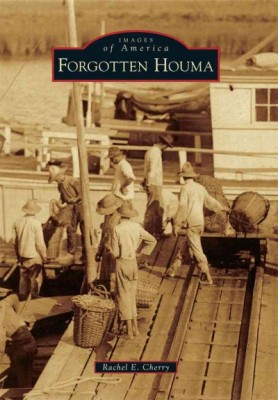| Forgotten Houma Contributor(s): Cherry, Rachel E. (Author) |
|
 |
ISBN: 1467113123 ISBN-13: 9781467113120 Publisher: Arcadia Publishing (SC) OUR PRICE: $22.49 Product Type: Paperback - Other Formats Published: January 2015 |
| Additional Information |
| BISAC Categories: - History | United States - State & Local - South (al,ar,fl,ga,ky,la,ms,nc,sc,tn,va,wv) - Photography | Subjects & Themes - Historical - Photography | Subjects & Themes - Regional (see Also Travel - Pictorials) |
| LCCN: 2014941886 |
| Series: Images of America |
| Physical Information: 0.4" H x 6.4" W x 9.1" (0.66 lbs) 128 pages |
| Descriptions, Reviews, Etc. |
| Publisher Description: Houma officially became the seat of Terrebonne Parish in 1848; however, the area known as "terre bonne" ("the good earth") was inhabited much earlier. The Houma tribe settled the land as early as 1760, Arcadian French settlers arrived by 1785, Spanish settlers by 1790, and wealthy English landowners established the area's first plantations in 1828. Agriculture, hunting, and fishing activities such as oyster harvesting and shrimp drying were prominent occupations in the parish until the oil and gas industry took hold of the economy in the 1920s. Seemingly endless waterways, marshes, and bays, coupled with fertile farmland and oil production, helped foster Houma's lucrative economy; likewise, a blend of customs, traditions, and natural disasters have shaped its unique culture. Forgotten Houma uses vintage photographs to capture the community before modernization and destruction, awakening the spirits of former residents and the memories of earlier ways of life. |
Contributor Bio(s): Cherry, Rachel E.: - Rachel Cherry, the executive director of Southdown Plantation House/The Terrebonne Historical and Cultural Society, has been a writer and historian in the coastal parishes of south Louisiana for more than eight years. Photographs in this collection appear courtesy of the Terrebonne Historical and Cultural Society, the United Houma Nation, and other private collections. |